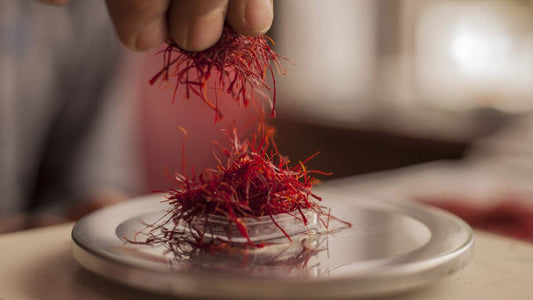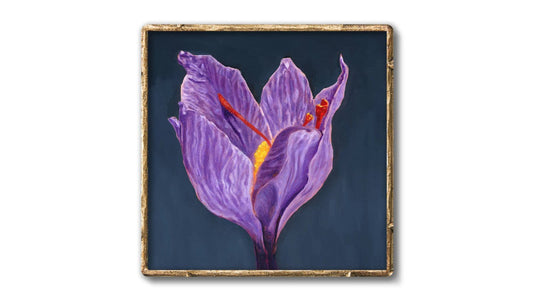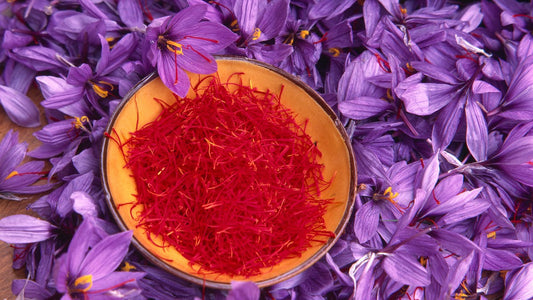
Saffron and Blood Pressure Regulation: Benefits & Scientific Insights
Ara OhanianShare
For centuries, saffron—a prized spice derived from the Crocus sativus flower—has been celebrated for its culinary and medicinal properties. Among its many health benefits, saffron's potential role in blood pressure regulation has garnered significant attention in the scientific and health communities. This blog explores the fascinating connection between saffron and blood pressure regulation, supported by research, practical applications, and tips for incorporating this golden spice into your daily routine.
Understanding Blood Pressure and Its Importance
Blood pressure is the force exerted by circulating blood on the walls of blood vessels. Maintaining a healthy blood pressure level is crucial for overall well-being, as both high blood pressure (hypertension) and low blood pressure (hypotension) can lead to serious health issues, including heart disease, stroke, and kidney problems.
Several factors influence blood pressure, including genetics, diet, physical activity, and stress levels. While medications are often prescribed to manage blood pressure, natural remedies like saffron are gaining popularity due to their potential effectiveness and minimal side effects.
How Saffron May Help Regulate Blood Pressure
Studies suggest that saffron contains bioactive compounds that may positively influence blood pressure. Here’s how:
- Rich in Antioxidants: Saffron is loaded with antioxidants like crocin, crocetin, and safranal, which help combat oxidative stress—a major contributor to high blood pressure.
- Anti-Inflammatory Properties: Chronic inflammation is linked to hypertension. Saffron’s anti-inflammatory compounds may help reduce inflammation, promoting healthier blood vessels.
- Vasodilatory Effects: Crocetin, one of saffron’s active compounds, has been shown to relax and widen blood vessels, improving blood flow and lowering blood pressure.
- Stress Reduction: Saffron is known for its mood-enhancing properties. By reducing stress and anxiety, it indirectly helps regulate blood pressure.
Scientific Studies on Saffron and Blood Pressure Regulation
Research into saffron’s impact on blood pressure is still evolving, but early studies are promising:
- A study published in the Journal of Ethnopharmacology found that saffron extract significantly reduced systolic and diastolic blood pressure in animal models.
- In a human study, participants who consumed saffron supplements for six weeks experienced a notable reduction in blood pressure levels.
- Another clinical trial highlighted saffron’s ability to improve endothelial function, which is crucial for healthy blood vessels and blood pressure regulation.
While these findings are encouraging, more large-scale research is needed to confirm saffron’s effectiveness and establish optimal dosages for blood pressure management.
How to Incorporate Saffron into Your Diet
Adding saffron to your diet is simple and versatile. Here are some tips:
- Infuse in Warm Water: Soak a few strands of saffron in warm water or milk for 10-15 minutes and add the infusion to your dishes or beverages.
- Add to Recipes: Use saffron in rice, soups, stews, and desserts to enhance flavor and reap its health benefits.
- Saffron Tea: Brew saffron tea by steeping a few strands in hot water along with honey or lemon for a soothing drink.
- Supplement Form: For a more concentrated dose, saffron supplements are available. However, consult your healthcare provider before starting any supplement.
Precautions and Considerations
While saffron is generally safe for consumption, it’s important to use it in moderation. Excessive intake can lead to side effects such as nausea, dizziness, or allergic reactions. Additionally, those on blood pressure medications should consult their doctor before incorporating saffron into their diet to avoid potential interactions.
Where to Buy High-Quality Saffron
For optimal health benefits, it’s essential to choose pure, high-quality saffron. At PureSaffron, we offer 100% Persian saffron that is ethically sourced and rigorously tested for quality. If you’re ready to experience the benefits of saffron, explore our premium saffron product here: Persian Pure Saffron.
FAQs About Saffron and Blood Pressure Regulation
-
1. How much saffron should I consume daily for blood pressure management?
While there’s no universally recommended dose, studies suggest that 30-50 mg of saffron per day may be beneficial. Always consult your healthcare provider for personalized advice.
-
2. Can saffron replace blood pressure medications?
No, saffron should not be used as a substitute for prescribed medications. It can complement your treatment plan but always consult your doctor before making any changes.
-
3. Are there any side effects of consuming saffron?
When consumed in moderation, saffron is safe for most people. However, excessive intake may cause nausea, dizziness, or allergic reactions.
-
4. Is saffron effective for both high and low blood pressure?
Saffron is primarily studied for its potential to lower high blood pressure. Its effects on low blood pressure are less understood and require further research.
-
5. How long does it take to see results from using saffron for blood pressure?
Results may vary based on individual factors and dosage. Some studies show improvements within a few weeks of consistent use.




